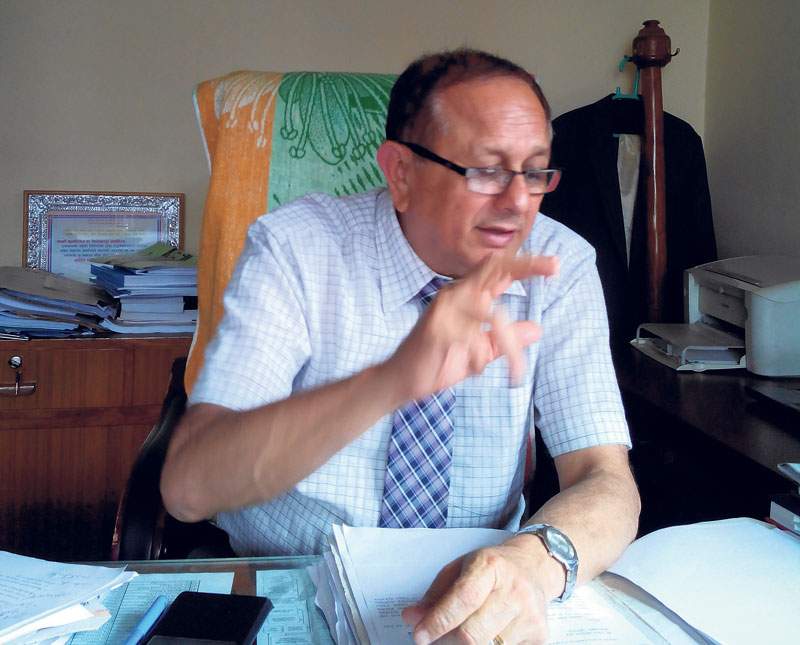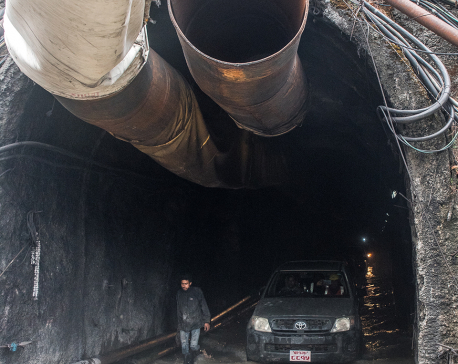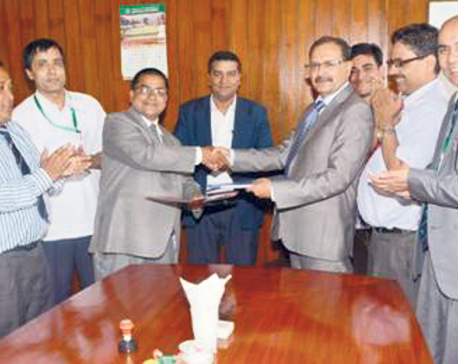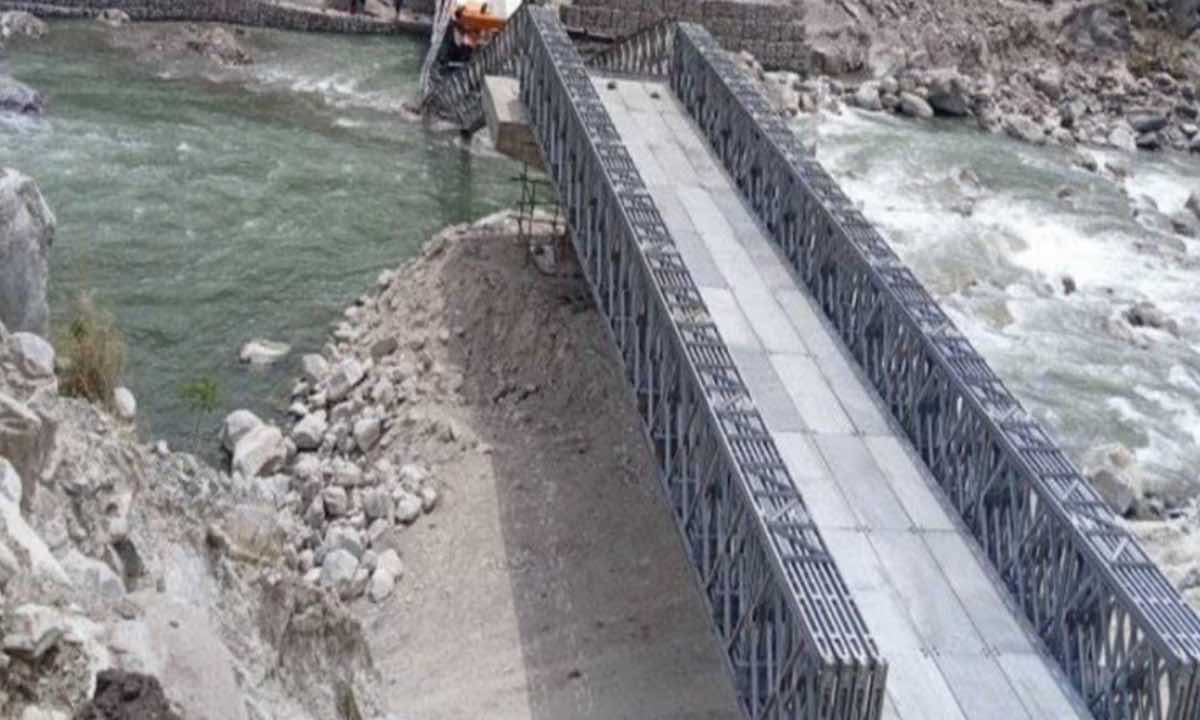
OR
ASBA will be a breakthrough in the capital market
Published On: July 25, 2016 12:10 AM NPT By: Republica | @RepublicaNepal

KATHMANDU, July 25: In just nine months of his appointment as the chairman of Securities Board of Nepal (Sebon), Rewat Bahadur Karki has initiated number of reform measures in the securities market. Full-fledged implementation of dematerialized trading system, allowing investors to get access to market depth, and halving the brokerage commission are some of the notable initiatives taken by Sebon under Karki's leadership. Sagar Ghimire of Republica, talked with Karki on overall securities market, problems and his future plans. Excerpt:
Ministry of Finance recently slashed brokerage commission by up to 40 percent as per the request of Sebon. Why did you decide to cut the commission?
Cost of transaction has to be rationale. The brokerage commission had not been reviewed for last eight years. The daily turnover and volume in the stock market has more than doubled in recent months compared to trading at that time. Reducing brokerage commission, which was one of the highest in South Asia, was one of my top priorities. Now, it has come down by up to 40 percent. That means cost of transaction is not so high in Nepal compared to other countries in the region. Similarly, we have also brought down transaction cost on over-the-counter trading by almost 90 percent. While this will be a big boon for investors who were paying huge commission, the reduction in transaction cost will not affect much to the brokerage firms also.
There is only one clearing bank now which is creating chaos in the stock market that is seeing average daily transaction of Rs 1 billion. What is stopping you from adding more clearing banks?
We need more clearing banks now as daily turnover has increased to around Rs 1 billion with the enforcement of full-fledged automated trading system. Brokers and investors, among others, are complaining about the problem arising because of the clearing bank. We are tired of giving instructions time and again to the Nepal Stock Exchange (Nepse) which is the responsible authority to add clearing banks. It has signed a five-year contract with the only clearing bank operating at present. We have held discussions with the Nepse and other stakeholders about the problem.
Given the transaction volume, we need at least three clearing banks. More competition means efficient service in the market. Nepse has expressed commitment to complete necessary preparation to add more clearing banks by mid-July. More clearing banks will come into operation after Nepse completes its technical homework.
Though dematerialized trading system has started full-fledged implementation, transactions are still not settled in four trading days. What is Sebon doing to address this problem?
There might be some problems. We have arranged a hotline phone in Sebon where investors can complain if they do not get payment even after four days of selling their shares. We have instructed all stakeholders to credit shares into buyer's account and provide payment to the seller at least within four days. For this to happen, there should also be awareness among investors to become cautious about the process. Also, there are risks in the market with the rise in transaction volume in recent months. That is why we are also planning to set up settlement guarantee fund and introducing the requirement of insuring securities transaction. We are in the process of preparing working procedure to set up the fund.
Sebon has been repeatedly urging investors to become cautious in the bullish market. Still, the benchmark index is rising to new highs even though our economy is not in a good shape. What do you think are the reasons?
When investors are not aware or financially illiterate, rumors drive up the stock market. We have only cautioned the investors to make rationale investment judgment when the economic indicators are not in good conditions. Raising awareness among investors is one of the objectives of Sebon. The stock market does not move in isolation. The economic fundamentals of the country, international economic outlook, performance of the listed companies and investors' sentiment, among other factors, determine the direction of the market. Investors have every right to make investment decision. It is also our duty to work for the protection of investors' interest. Also, we have introduced the automated trading system which is a major breakthrough in the market. This has also boosted confidence of the investors. Now, investors can buy shares within five days from the payment they get after selling their shares. Also, investors do not have other better alternatives of the investment other than the stock market now.
What are your further plans for the modernization of the market?
Allowing commercial banks' subsidiary to work as brokerage firms for more competitive brokerage services, carrying out necessary reforms so that the real sector companies would be encouraged to list their shares in the market, introducing Application Supported by Blocked Amount (ASBA), and taking stock market outside the valley, are some of the major plans that we want to implement soon.
Please tell us more about ASBA. How is the progress in its implementation?
We are planning to introduce the ASBA system very soon. It will be another breakthrough in the capital market. Following the introduction of this system, the money of investors, who apply for initial public offering of any company, will be debited from the bank account only after s/he is allotted shares. This will also significantly reduce the time it takes for a company to complete the IPO process and list its shares for trading in the secondary market.
You May Like This

NRNs say interested in investing Rs 10b in capital market
KATHMANDU, Dec 23: Even before the government has cleared the legal decks for non-resident Nepalis to make investment in stock market,... Read More...

Tunnel breakthrough brings Melamchi water a step closer to Kathmandu
KATHMANDU, April 13: With the completion of the excavation of 26-km tunnel, the much-awaited supply of drinking water as part of... Read More...

Ace Capital named issue manager for ADBL’s right issue
KATHMANDU, Aug 15: Agricultural Development Bank Ltd (ADBL) has signed an agreement with Ace Capital Ltd for its rights issue. Read More...
Just In
- Gold items weighing over 1 kg found in Air India aircraft at TIA
- ACC Premier Cup semi-final: Nepal vs UAE
- Sindhupalchowk bus accident update: The dead identified, injured undergoing treatment
- Construction of bailey bridge over Bheri river along Bheri corridor reaches final stage
- Taylor Swift releases ‘The Tortured Poets Department’
- India starts voting in the world’s largest election as Modi seeks a third term as prime minister
- EC seeks cooperation for free and fair by-election
- Bus carrying wedding procession attendees meets with accident in Sindhupalchowk; three killed



















Leave A Comment